Transcription of Implicit Bias and Policing
1 Social and Personality Psychology Compass 10/1 (2016): 50 63, Implicit Bias and Policing Katherine B. Spencer1, Amanda K. Charbonneau2 and Jack Glaser2. 1. Department of Psychology, University of California, Berkeley 2. Goldman School of Public Policy, University of California, Berkeley Abstract In a time when racial prejudice is generally taboo and decision makers, including law enforcement officials, strenuously disavow the use of group-based stereotypes to make judgments that affect others, one might expect discriminatory outcomes to be unusual. However, research repeatedly indicates that discrimination is pervasive across many domains, and specifically in Policing . A major cause of biased Policing is likely the Implicit biases that operate outside of conscious awareness and control but nevertheless inf luence our behaviors.
2 Implicit biases ( , stereotypes linking Blacks with crime or with related traits like violence or hostility) inf luence judgments through processes of misattribution and disambiguation. Although psychological science gives us good insight into the causes of racially biased Policing , there are as yet no known, straightforward, effective intervention programs. Nevertheless, there are several strands of research that represent promising avenues for further exploration, including intergroup contact, exposure to counter-stereotypic exemplars, and stereotype negation. Meanwhile, many police depart- ments are adjusting their policies, trainings, and procedures to try to address biased Policing and community complaints. Several common themes among those changes include banning racial profiling, collecting data, training officers, reducing discretion, and adopting new technologies.
3 These adjustments are more likely to be successful if they incorporate the understanding that biased Policing occurs in the absence of explicitly racist thoughts because of well-documented, pernicious stereotypes that operate largely outside of conscious awareness and control. The historically strained state of race relations and Policing in America has been further shaken in recent years as high-profile cases of unarmed Black men and boys being fatally shot have received considerable media attention and sparked protests and calls for reform. These extreme events are a legitimate cause for concern, but they are only the tip of the iceberg of a much more pervasive problem of racial discrimination in law enforcement, one that manifests itself in thousands of unnecessary pedestrian and vehicle stops daily ( , Jones-Brown et al.)
4 , 2010). and high rates of non-lethal force (Eith & Durose, 2011, Table 18, p. 12; Jones-Brown, Gill, & Trone, 2010, Figures 11 and 12, p. 16; International Association of Chiefs of Police, 2001, Table 48, p. 45). Racially discriminatory outcomes have been amply documented across many law enforcement domains (Glaser, 2014). We start from the presumption that most police officers do not intentionally discriminate. To be sure, there are overtly racist police officers, just as there are overtly racist individuals in almost any profession. Furthermore, some officers may deliberately use racial stereotypes in judgments about who to stop and search; it is not, after all, really that many decades since overtly discrim- inatory Policing was a way of life.
5 We are not aware of any research that has directly measured the extent to which actual police officers disavow the use of category-based ( , racial) biases in deciding who to investigate or how to investigate them. It is worth noting that Eberhardt, Goff, Purdie, and Davies (2004), using a procedure that was hardly unobtrusive, found that police officers were more likely to report that Black (and, among them, more stereotypically Black). faces looked like criminals. 2016 John Wiley & Sons Ltd Implicit Bias and Policing 51. Not coincidentally, in addition to the high rates of contact with police for minorities, these populations, particularly young, Black men, are dramatically overrepresented in America's jails, prisons, and probation systems (Glaser, 2014).
6 For example, while about of White men are serving sentences of one or more years, about 3% of Black men are. The Bureau of Justice Statistics projected in 2003 that of men born that year, of Whites would be incarcerated at some point in their lives; for Latinos and Blacks, it was and (BJS, 2003). Data on crime rates (either based on victim reports or surveys on weapons- and drug-related- behaviors) cannot explain these disparities (Glaser, 2014). Police contact is the entry point for the criminal justice system. Consequently, biases (like any preconceptions) held by the police almost certainly cause racially discriminatory decisions about whom to investigate (stop, question, search) and how to interpret their behavior, and therefore partially account for disparities in criminal justice outcomes.
7 While Implicit biases may seem subtle, the cumulative effects of repeatedly skewed perceptions and attributions likely have profound effects on life outcomes (Greenwald, Banaji, & Nosek, 2015). From conversations with Policing experts, police leaders, and rank-and-file officers as well, however, it is clear to us that at least the expressed norm is one that repudiates biased Policing . Accordingly, the following discussion will focus on Implicit biases those that operate largely outside of conscious awareness and control. Again, it is our presumption that Implicit biases, and the spontaneous, discriminatory judgments they give rise to, represent the lion's share of cause of biased Policing in America today. However, if we are wrong (if biased Policing is largely conscious and intentional), there are two implications.
8 First, at least consideration of Implicit bias will help to explain part of the problem. Second, policy makers should seek interventions (to the extent that they exist) that will address both Implicit and explicit sources of bias and are not at cross-purposes. How Implicit Biases In uence Judgments and Behaviors In a time when racial prejudice is generally taboo, and decision makers, including police officers, strenuously disavow the use of group-based stereotypes to make judgments that affect others, one might expect discriminatory outcomes to be unusual. However, research repeatedly indi- cates that discrimination is pervasive across many domains (Council of Economic Advisors, 1998), and specifically in Policing (Glaser, 2014).
9 The likely culprits are the Implicit biases that operate outside of conscious awareness and control but nevertheless inf luence our behaviors (Greenwald, Poehlman, Uhlmann, & Banaji, 2009). The purpose of this article is to consider how Implicit biases affect Policing . Other essays provide clear and thorough explanations of the cognitive theory behind Implicit associations ( , Greenwald & Banaji, 1995), the psycho- metric reliability of the measurement methods (Bar-Anan & Nosek, 2014), and the predictive validity of Implicit bias measures for organizationally relevant behaviors ( , Jost et al., 2009). For readers unfamiliar with Implicit attitude measures, we recommend a visit to www. Implicit biases ( , stereotypes linking Blacks with crime) do not directly cause biased Policing ; rather, they inf luence judgments through a set of processes described next.
10 Misattribution Attributing events or experiences to the appropriate cause is crucial to explaining and predicting behavior, such as whether a person's behavior is due to internal (dispositional) causes or external (situational) causes. However, sometimes an event or experience is attributed to an incorrect cause, a phenomenon known as misattribution. Individuals may overestimate internal causes for behavior relative to external causes, for example, ultimately viewing personality as more 2016 John Wiley & Sons Ltd Social and Personality Psychology Compass 10/1 (2016): 50 63, 52 Implicit Bias and Policing inf luential of behavior than it truly is ( Jones & Harris, 1967). One measure of Implicit attitudes, the Affect Misattribution Procedure (AMP; Payne, Cheng, Govorun, & Stewart, 2005; see also Murphy & Zajonc, 1993), is itself an empirical illustration of how Implicit bias can lead to mis- attribution.
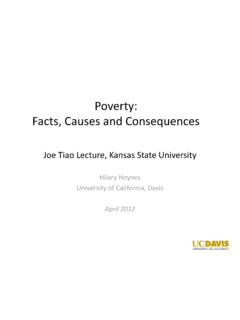





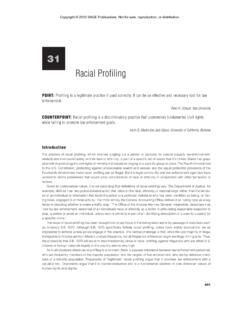

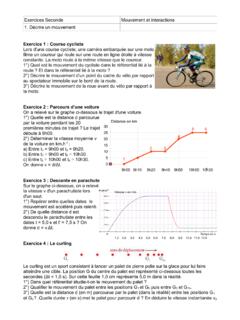
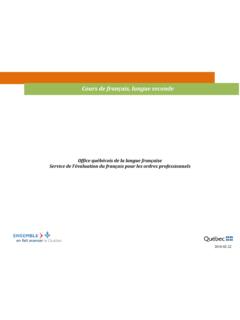
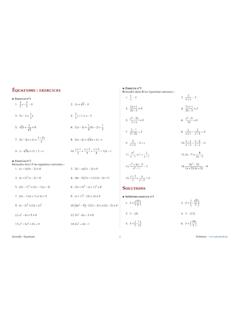


![[U] User's Guide - Stata](/cache/preview/7/7/5/3/e/3/b/2/thumb-7753e3b2038b263eb367b7bfd142f64f.jpg)